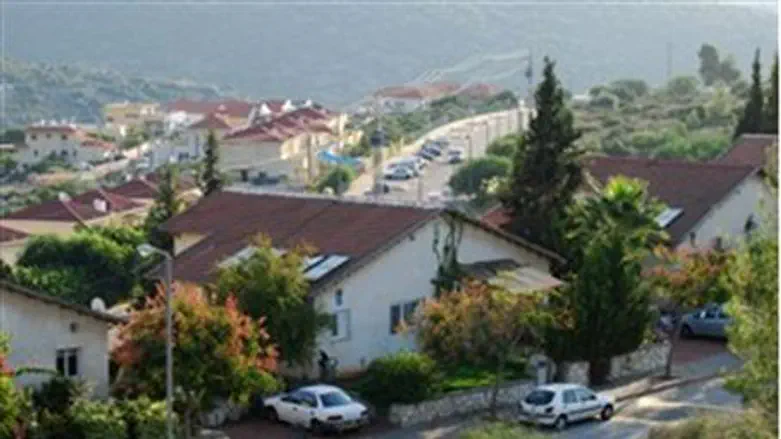
The government is expected to release tenders in the upcoming days for the construction of 400 new homes in Judea and Samaria. The tenders will be issued for towns within the majority-Jewish areas of the region, known as “settlement blocs.”
Most of the tenders – 300 of the 400 – will be issued for apartments in the hareidi-religious city of Beitar Illit, where housing prices have soared in recent years as new building came to a near-complete stop, while demand multiplies.
Another 46 will go to Karnei Shomron, and 40 homes will be built in Efrat in which the situation is similar.
The report of new tenders comes just two weeks after the government approved a move to transfer the rural settlement department, which includes aspects of building in Judea and Samaria, from the Ministry of Agriculture, headed by a minister from Barak's party, to the Prime Minister's Office. The move was expected to mark a significant change in the role played by Defense Minister Ehud Barak: new building is now coordinated with the defense minister, as these areas are under military jurisdiction, but no longer requires his advance approval before being brought before the cabinet.
Housing Minister Ariel Attias had previously warned that Barak could unofficially continue a 10-month Judea and Samaria construction freeze by simply neglecting to sign requests for construction. Barak did just that, de facto ending construction in “settlement bloc” communities such as Efrat and Ofra, and thwarting efforts to plan building during the freeze.
MKs Zev Elkin and Aryeh Eldad, heads of the Knesset's Land of Israel Lobby, welcomed the decision to issue tenders. “We are pleased to see the end of the building freeze in practice in the settlement blocs, and the beginning of a government initiative to building in Judea and Samaria,” the two said.
“We hope this is a first step in the renewal of construction and the publication of tenders in the settlement blocs and throughout Judea and Samaria, things which are vital to the creation of a secure border for the country,” they added.
No new tenders have been issued for homes in Jerusalem neighborhoods held by Jordan from 1948 to 1967, something which added fuel to reports of a de facto building freeze in much of the city. The Palestinian Authority claims all such neighborhoods, including those that are historically Jewish, and those that were barren hills in 1967,as part of the capital of a future Arab state.
The building freeze in Jerusalem, like that in Judea and Samaria, has served to exacerbate the housing crisis that has made homes unaffordable for many young families in recent years. An estimated 600,000 Israelis live in Judea, Samaria, and Jerusalem neighborhoods affected by the freeze, putting the rate of building in those areas well below the rate of natural growth.